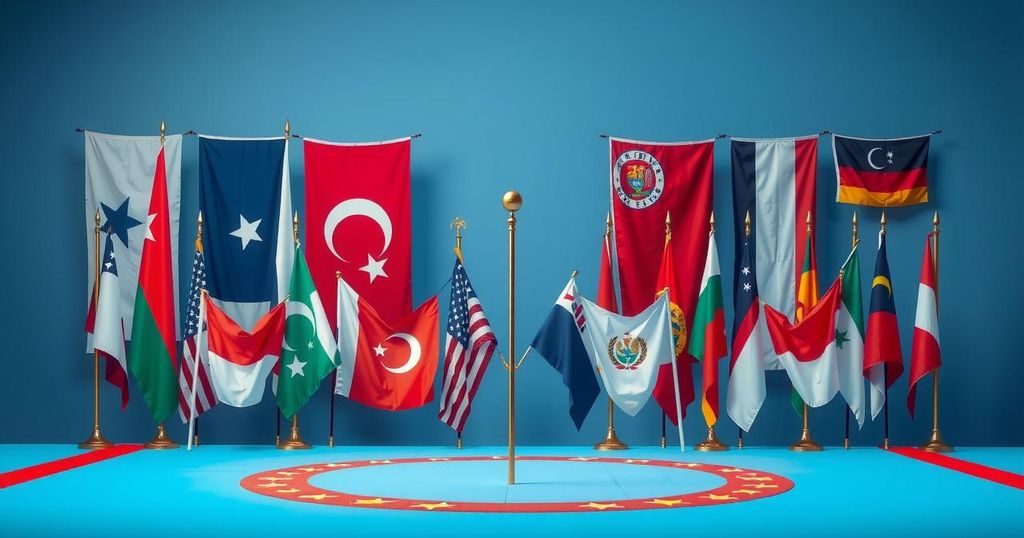Iraq’s invitation to new Syrian President Ahmad al-Sharaa for the Arab League summit has sparked considerable political division. While some view it as an opportunity for diplomacy, powerful Shiite factions oppose it due to al-Sharaa’s militant past. The ongoing tensions reflect deep-seated sectarian divides within Iraq’s political system.
The invitation extended to new Syrian President Ahmad al-Sharaa for the Arab League summit in Baghdad has generated significant political discord in Iraq. Al-Sharaa, who assumed power following a rapid rebellion that ousted his predecessor, Bashar Assad, aims to unite Syria after a protracted civil war. However, his previous involvement with Sunni Islamist militancy raises concerns among Shiite factions in Iraq.
Known as Abu Mohammed al-Golani during his time with al-Qaida, al-Sharaa is still under a terrorism warrant in Iraq for his actions during the U.S. invasion in 2003. Prime Minister Mohammed Shia Al-Sudani has confirmed the formal invitation for al-Sharaa, but al-Sharaa has yet to confirm his attendance.
Iraq seeks to assert its role as a regional mediator, having previously facilitated diplomatic discussions between Iran and Saudi Arabia. The summit invitation is seen by some as a chance to enhance Iraq’s diplomatic standing. Conversely, Shiite factions connected to Iran contest this invitation due to their past involvement in supporting Assad.
Iraqi Shiite militias, who fought alongside Assad during the civil war, find al-Sharaa’s presence especially contentious. Mustafa Sand, a Coordination Framework parliament member, disclosed that the foreign ministry is verifying al-Sharaa’s arrest warrant, which a judicial body has confirmed.
The Islamic Dawa Party is advocating that participants at the summit should have a clear legal record, calling attention to al-Sharaa’s past criminal actions against Iraqis. Meanwhile, representatives from the militia Kataib Hezbollah expressed that the summit proceeds whether or not al-Sharaa attends.
In contrast, Sunni factions defend the invitation, with former MP Dhafir Al-Ani claiming that preventing al-Sharaa’s participation would undermine the Iraqi government’s diplomatic efforts. The Iraqi administration has not officially addressed the discontent regarding al-Sharaa.
While the warrant may not hinder al-Sharaa’s ability to attend, it reflects the ongoing strife in Iraq’s political landscape and the complexity of national reconciliation. Political analyst Munaf Al-Musawi emphasized that al-Sharaa’s welcome could be perceived as disrespectful to Iraqi victims, potentially heightening sectarian tensions.
The invitation for Ahmad al-Sharaa to attend the Arab League summit in Baghdad has led to significant political divisions within Iraq. While the Iraqi government aims to bolster its diplomatic role in the region, opposition from Shiite factions highlights underlying sectarian tensions. The controversy surrounding al-Sharaa not only underscores the fractured political landscape but also poses challenges to national reconciliation efforts in Iraq.
Original Source: www.usnews.com






